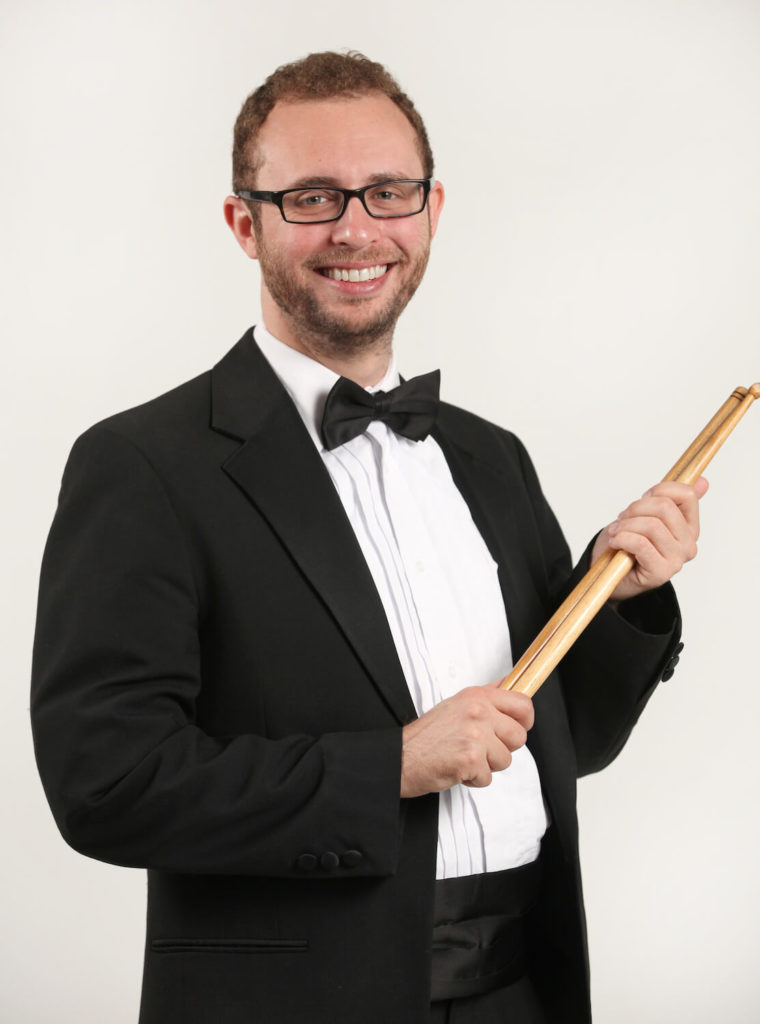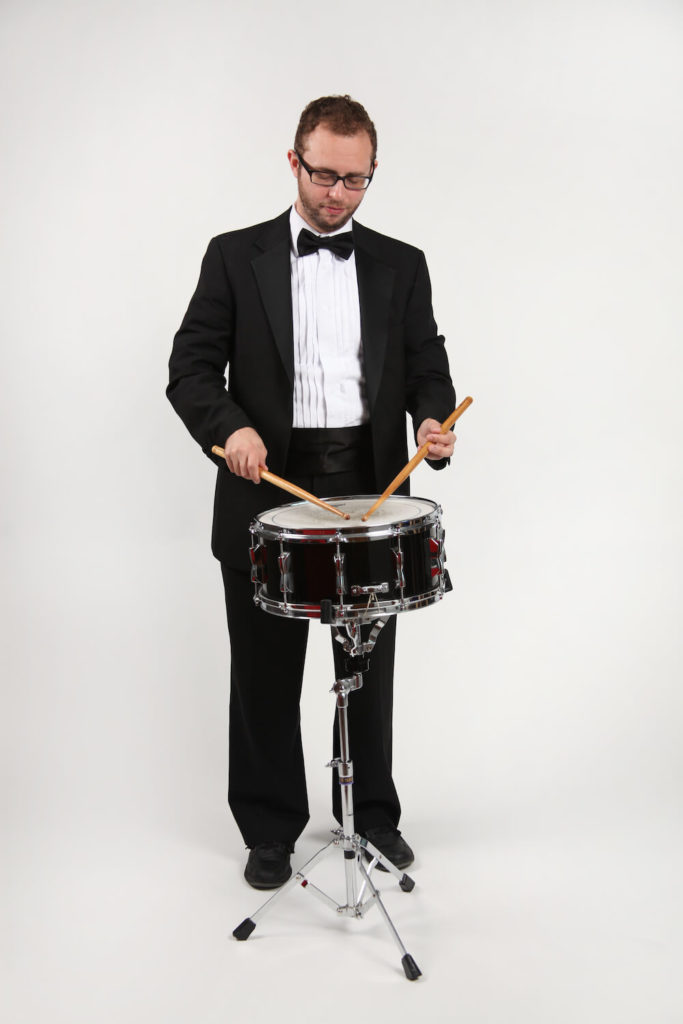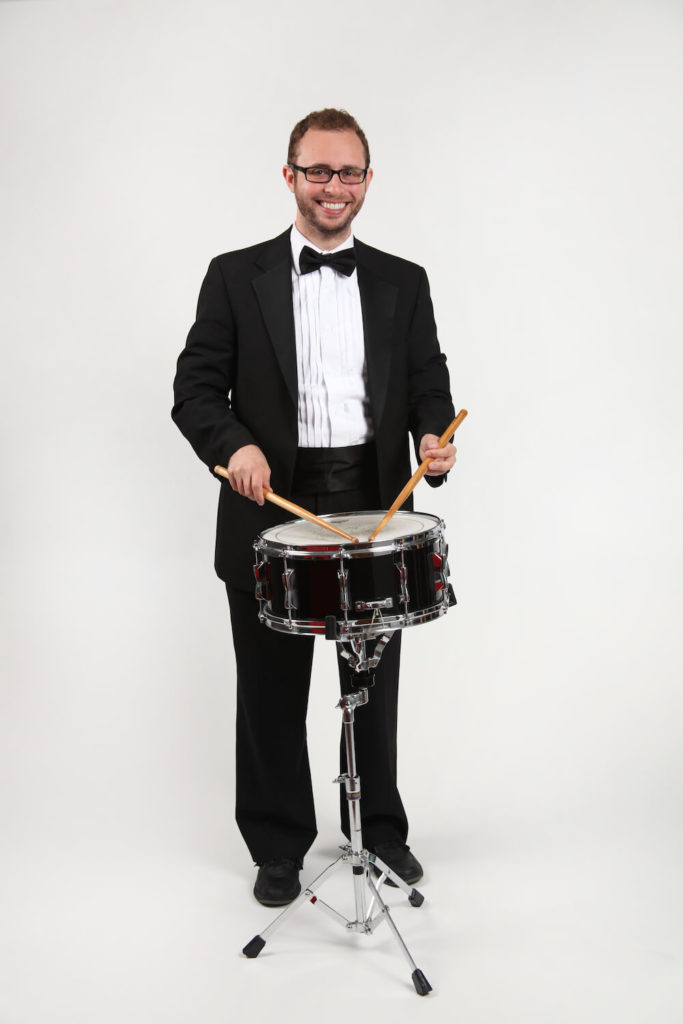Practicing is the way musicians cultivate their talents, but often students and younger musicians struggle to learn the proper techniques and strategies to make practicing efficient. All of our musicians here at the Orlando Philharmonic Orchestra have diverse backgrounds from all over the world and have learned from some of the best! Over time (and through trial and error), they have gained impeccable practice skills and are now going to share some of that insight.

Today, we’ve asked Principal Percussionist John Patton how he practices. John joined the Orlando Philharmonic Orchestra in 2014 and has performed with orchestras around the world! Here is what he said about practicing:
Orlando Philharmonic (OPO): What does a typical practice session look like for you?
John Patton (JP): Sessions can vary based on which instruments need the most attention, but I always start with snare drum fundamentals. Snare requires the most upkeep for me, and the focus required gets me ready for the rest of the session.
OPO: What strategies have you found to be most successful while practicing? What strategies don’t work for you?
JP: When learning solos, I prefer to work backward. This makes each individual section of the piece stand out. When learning excerpts, I use post-it notes to write down cue words or methods to employ on audition day. The music is generally memorized so it helps to have 1 or 2 specifics to focus on when auditioning.

OPO: Where or from whom did you learn practicing techniques?
JP: At Lynn Conservatory, where I spent 2 years pursuing a Professional Performance Certificate, I used to practice from 8-12 every night when the studios were generally empty. As I got more tired I would focus on smaller details and rep them over and over. I would also take notes and record myself so I would know where to start the next day.
OPO: What advice would you give aspiring musicians for when they practice?
JP: Record yourself and play for other people as often as possible. Playing for others will help with nerves and recordings can highlight flaws that you won’t notice while you’re playing. And listening back is a good way to practice when you’re too tired to keep playing.
OPO: If you could go back in time to one of your earliest practice sessions and tell your younger self anything, what would it be?
JP: Start learning mallets sooner!
And just for fun, let’s do a rapid round, respond in a few words only!
OPO: Do you have any pets? If so, what are their names?
JP: No pets, but I’d like to own a dog someday…preferably named Morris

OPO: What is your favorite non-classical music genre?
JP: Classic Rock
OPO: What is your favorite type of dessert?
JP: My wife’s tiramisu
OPO: What is your favorite movie?
JP: Duck Soup
OPO: What non-music hobbies do you have?
JP: Tennis, Movies